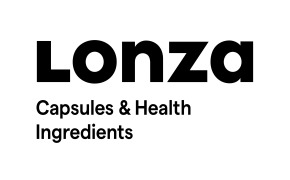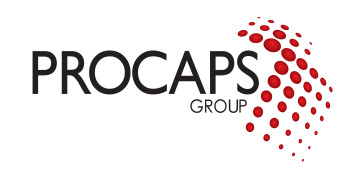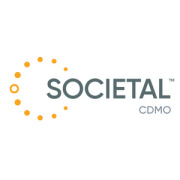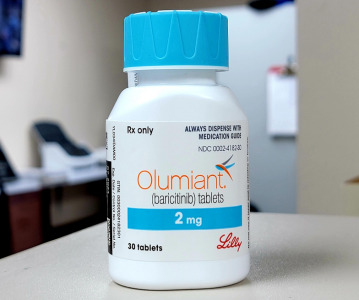Discover the CPHI North America Learning Labs: Part One

Explore the series of Learning Labs at CPHI North America across several product innovation categories in which thought leaders at our exhibitors showcase their extensive expertise in all areas of the pharma supply chain, offering industry insights across drug manufacturing, outsourcing, pharma ingredients, drug delivery and packaging.
Within this summary, we provide a taster of what some of them have to offer. All this knowledge is available to you at your desktop – all you need to do is register for the event here.
You can access Part Two here.
Pharma Ingredients
Unlocking the Power and Versatility of Plant-Based Softgels
In this session, Carlos Perez, Commercial Director, Unigel technology, Procaps and Carolina Quintero, Director of New Pharmaceutical Technologies, Procaps run the rule over vegetarian soft capsules which constitute 10-15% of the total soft capsule market amid a rise in popularity of plant-based diets.
“There is a big expectation regarding more competitive offers for these materials, the optimisation of processing technology as well as the expansion of the pharmaceutical market,” Perez says. “The plant-based trend is here to stay.”
He adds that according to Mintel, plant-based diets have been growing in popularity, reflecting consumer desires to act more sustainably and eat more healthfully.
“Also, the pandemic has given consumers more reasons to avoid animal-based foods, which will lead to more growth for the plant-based category,” he says.
Drug Manufacturing
Lonza Quakertown - Micronization & Particle Size Control
Lonza Quakertown provides expertise in particle size reduction and classification servicing the cGMP pharmaceutical marketplace. This presentation by Michael Bauer, Site Head, Lonza Quakertown, Lonza provides a description of the site and its sister site at Monteggio, Switzerland and an overview of capabilities specific to micronization and classification while highlighting the value of particle size reduction and control.
“In terms of micronization, we’re able to support a client base which ranges from the virtual pharma smaller companies all the way up to big pharma partners,” Bauer says. “We’re able to combine our expertise with hundreds of different molecules and a wide array of equipment. We basically have the tools and knowhow to handle a wide array of product challenges.”
Lonza Tampa - Expansions in HPAPI for Oral Solid and Inhalation Technology
Lonza’s facilities in Tampa, Florida are an integral component of the company’s design, development and manufacturing network for drug substances and specialized drug products. Working collaboratively with customers, the Tampa team designs, develops and manufactures oral solid and inhalation drug products.
In this session, Jeff Williamson, Director, Product Development, Lonza explains how the Tampa site provides a full range of services, starting from initial stages of product development including pre-formulation, formulation & process design, and analytical method development. These services extend into early phase clinical, late phase clinical, and commercial scale production including packaging and distribution worldwide.
“Lonza employs a Harro Höfliger encapsulator system for larger scale production in supporting both oral solid and dry powder for inhalation product development,” he says. “These systems have high speed, large volume capabilities and provide an efficient pathway to commercialising API and capsule formulations.”
Proactive Planning for Supply Chain Risk Mitigation
In this learning lab, Scott Rizzo, Senior Vice President and General Manager, Recro focuses on a topic that has become very much in vogue in recent months – management of supply chain disruption. Amid the COVID-19 pandemic, many life sciences companies are now putting in place strategies to address secondary suppliers and to mitigate supply chain interruptions.
Rizzo runs through the most common types of disruption in the pharma sector, highlights the preventative strategies that can be employed to tackle them and addresses some of the misconceptions about secondary sourcing.
“When you think about all the items that go into your product, there are going to be some that are more critical than others – what are the longest lead times and the gaps that you have,” Rizzo says. “Develop a plan and really put the work into it; take everything from an internal and external standpoint and work your way back.”
Packaging & Drug Delivery
Understanding USP 661.2 and Strategies for Compliance
The focus of this session led by Jason Eckel, Vice President, Sales - Healthcare, Transcendia is USP 661 regulations that impact pharmaceutical packaging systems, including those used during pharmaceutical manufacturing such as chutes, tubes, bags and binliners for non-liquids.
“We have seen that many pharmaceutical companies focus on the final packaging and the regulations that apply there and fail to assess their supply chain for the risk of non-compliant packaging systems in the main manufacturing environment especially when APIs and excipients are being outsourced and those packaging decisions are left to their outsourcing partners,” he says. “USP has been clear that the new regulations in 661.2 apply to all products that come in contact during the manufacturing, distribution and administration of ingredients and finished pharmaceuticals.”




Related News
-
News How to disrupt an industry as big as pharma for the better?
In this interview, hear from Matthew Wise, Head of Data at CCD Partners, on the companies they've been looking into that are offering new and interesting perspectives that have the potential to shake up the pharmaceutical industry, and how they'... -
News AstraZeneca invests in AI collaboration for cancer drug trials
The British-Swedish pharmaceutical giant is partnering with biotechnology firm Immunai Inc to increase the efficiency of some cancer drug trials. -
News Ozempic and Wegovy prices questioned as Novo Nordisk faces US Senate hearing
The CEO of Novo Nordisk was grilled during a US Senate committee hearing on September 24, 2024, in which the exorbitant prices of the Danish company’s blockbuster drugs Ozempic and Wegovy were called into question. -
News The BIOSECURE Act: implications for the pharma supply chain
On September 9, 2024, the US House of Representatives voted to pass the bill titled the BIOSECURE Act (the Act), which lists several Chinese companies in the pharmaceutical supply chain. The Act will prohibit American companies from contracting or doin... -
News US BIOSECURE Act passed by US House of Representatives
The controversial act, which has already impacted several foreign companies operating in the US, was passed by the House of Representatives on September 9, 2024. It is now headed for the US Senate before it can be signed into law by President Joe Biden... -
News Eli Lilly licenses rheumatoid arthritis manufacturing in Africa
American pharmaceutical company Eli Lilly has signed a partnership with Egyptian organisation Eva Pharma to localise manufacturing of rheumatoid arthritis treatments in Africa. -
News Latest updates for semaglutide: reduction of renal failure risk
Recent data presented at the 2024 European Society for Cardiology (ESC) conference analysed Novo Nordisk’s Ozempic (semaglutide) and its effectiveness in the management of chronic kidney disease (CKD). This follows previous analysis on semaglutid... -
News Drug prices agreed upon as part of the US Inflation Reduction Act
The Inflation Reduction Act brought into constitution by the Biden administation in 2022, which proposed a drug price negotiation between the government and pharmaceutical companies, has reached it's first agreement.
Position your company at the heart of the global Pharma industry with a CPHI Online membership
-
Your products and solutions visible to thousands of visitors within the largest Pharma marketplace
-
Generate high-quality, engaged leads for your business, all year round
-
Promote your business as the industry’s thought-leader by hosting your reports, brochures and videos within your profile
-
Your company’s profile boosted at all participating CPHI events
-
An easy-to-use platform with a detailed dashboard showing your leads and performance

.png)





